Working to Address LGBTQ+ Homelessness
According to the U.S. Department of Housing and Urban Development, there were over 700 people experiencing homelessness in Kalamazoo County in 2019. Statistics for 2020 are still pending, but the problem is still quite prevalent.
LGBTQ+ individuals face unique challenges when it comes to homelessness. Discrimination, rejection, and social stigma only add to the mental and physical obstacles one may face while struggling with being unhoused. We asked OutFront Kalamazoo Executive Director Amy Hunter to share some details about LGBTQ+ homelessness in the Kalamazoo and Southwest Michigan area, and the work that OutFront is doing to combat the issue.
We hear a lot about homeless LGBTQ+ youth. Is this a problem in our area?
AH: Yes, it is. Homelessness is often assumed to be a problem of big cities and highly concentrated urban areas. But LGBTQ+ individuals experience the same difficulties here that lead to housing distress and homelessness. And youth who identify as LGBTQ+ are at much greater risk of becoming homeless than their non-LGBTQ friends and classmates. In fact, our statistics in Kalamazoo County estimate that 40% of homeless youth identify as LGBTQ+. Moreover, Kalamazoo has a distinct lack of shelter space for youth, and for LGBTQ+ people in general.
How has OutFront Kalamazoo worked to address the problem of LGBTQ+ homelessness?
AH: OutFront Kalamazoo has been working on this issue with various local partners. Hunter Willard joined our staff last year as our Director of Homeless Youth Programs. Hunter serves as a case manager and is often able to find temporary solutions for homeless LGBTQ+ people in the area. Not just youth, but adults as well. Through our Homeless Youth Program’s budget, we have funds available to place people in a hotel for a few days until we can find a longer-term solution for them. There’s a domestic violence shelter in Battle Creek called S.A.F.E. Place which accepts LGBTQ+ people, and there are other resources in Kalamazoo, but they’re nearly always fully booked.
One of the problems that is endemic in the homeless community is that many shelters are religion-based and are run by organizations which are affiliated directly with a church. Sometimes these organizations are not LGBTQ+ friendly and, in particular, not trans friendly. This is a problem in Kalamazoo that we are hoping to address with OutFront’s Host Homes program and with the Legacy House.
Tell us more about the Legacy House.
AH: The Legacy House is a physical structure that we will be leasing through the Housing Commission in Kalamazoo, and is being remodeled in a partnership with CARES. We’ll have a capacity of 8 people as a longer-term solution for LGBTQ+ youth between the ages of 18 and 25 who cannot be served through the Host Homes program. The Legacy House should be ready to open sometime between mid-March and May. We’re coming up on it quickly, so we’re working to get everything up to code with being a group shelter within the city. The house is close to downtown, nearby public transportation, and we will be actively involved in providing case work and case management services for individuals who become residents of the Legacy House.
The Legacy House is not going to be just somewhere we place people--it will be a place where we will provide services to help LGBTQ+ individuals find safe, affordable, long-term housing opportunities.
Keep an eye on our News and social media pages for updates about the Legacy House.


